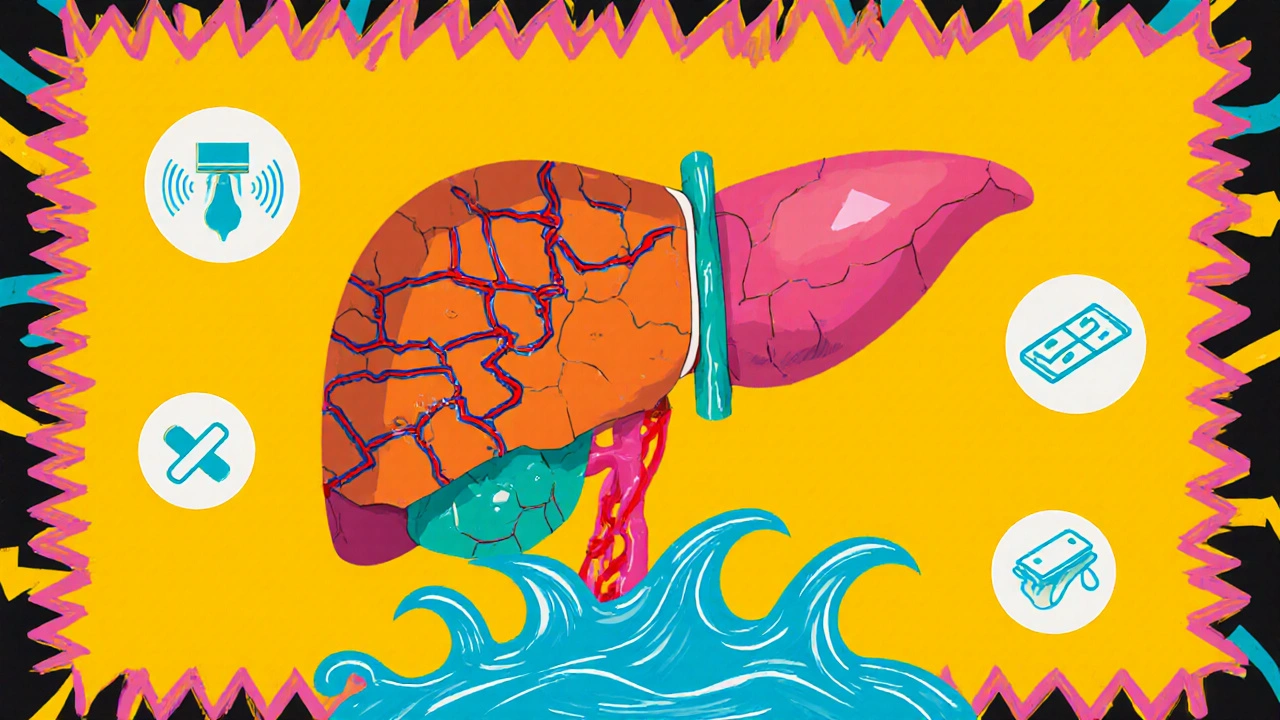Cirrhosis Complications: What You Need to Know About Liver Damage and Related Risks
When the liver gets badly scarred from long-term damage, it develops cirrhosis, a late-stage condition where healthy liver tissue is replaced by fibrous scar tissue, impairing function. Also known as liver cirrhosis, it doesn’t just slow down the liver—it sets off a chain reaction of dangerous side effects that can hit your whole body. This isn’t just about feeling tired. Cirrhosis forces your body to deal with pressure buildup, toxin leaks, and fluid overload—all because the liver can’t filter, store, or produce what it should anymore.
One of the most common and serious outcomes is portal hypertension, high blood pressure in the vein that carries blood from your intestines to your liver. When scar tissue blocks blood flow, pressure rises, causing veins in your esophagus and stomach to swell. These can burst without warning, leading to vomiting blood—a medical emergency. At the same time, your liver stops making enough protein to keep fluid in your blood vessels, so it leaks into your belly. That’s ascites, a buildup of fluid in the abdomen that causes swelling, discomfort, and can become infected. Then there’s hepatic encephalopathy, a brain disorder caused by toxins the liver can no longer remove. People with this condition get confused, forgetful, or even slip into a coma. It’s not dementia—it’s your liver failing to clean your blood.
These complications don’t happen in isolation. They feed off each other. Ascites increases pressure, which worsens portal hypertension. Toxins from gut bacteria slip through a damaged barrier and reach the brain. Infections like spontaneous bacterial peritonitis can sneak into the fluid in your belly. And once one complication appears, others are likely to follow. That’s why managing cirrhosis isn’t just about treating the liver—it’s about watching for these warning signs before they turn critical.
What you’ll find below are real, practical guides that break down how these complications show up, what they mean for your health, and how medications, lifestyle changes, or monitoring tools can help you stay ahead of them. From spotting early signs of brain fog to understanding why certain drugs need to be avoided, these posts give you the facts you need—not guesswork.
Chronic Liver Disease: Understanding Cirrhosis Complications and How to Manage Them
Cirrhosis is the advanced stage of chronic liver disease with serious complications like ascites, bleeding, and liver cancer. Learn how to recognize symptoms, manage risks, and improve survival through proven treatments and lifestyle changes.
© 2026. All rights reserved.

